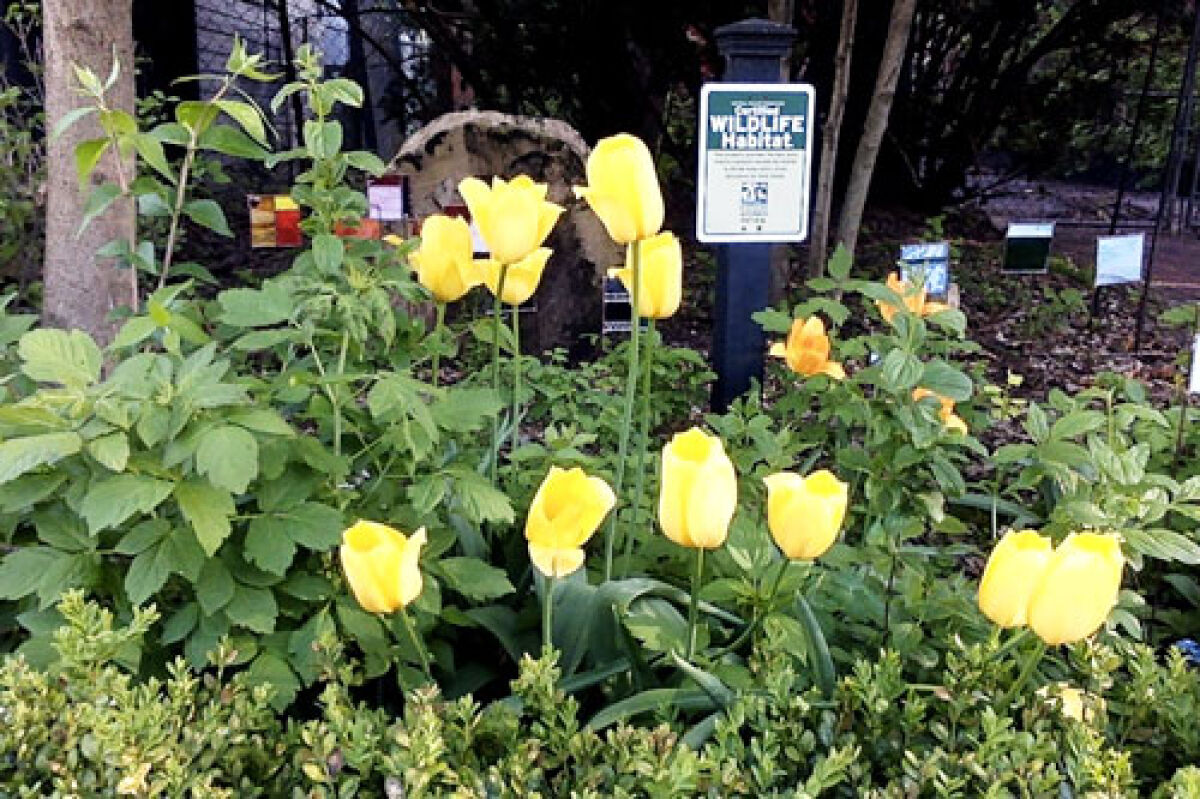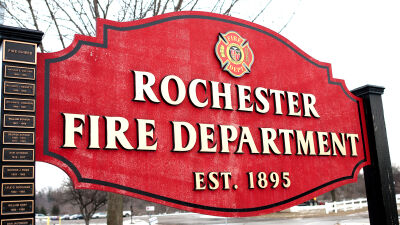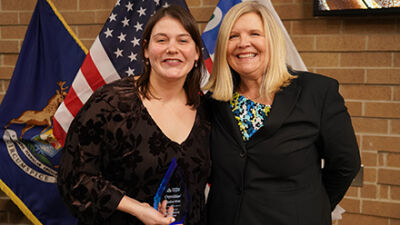ROCHESTER — Patricia Kane, of Rochester, has been recognized by the National Wildlife Federation for having a Certified Wildlife Habitat for 30 years as of June 9. Kane was first granted the award on June 9, 1995, for her residential property in the 800 block of West Fourth Street in downtown Rochester.
The designation as a Certified Wildlife Habitat recognizes yards that provide resources for local wildlife — including food, water, cover, and places for animals to raise their young — while also employing a minimum goal of 70% native plants, and are free of neonicotinoids and other pesticides or herbicides. Organizations like the National Wildlife Federation offer certification programs, awarding a sign to display once a habitat is approved.
“I am proud of this for what it does for the environment, for health and for the protections of natural resources,” Kane said of the achievement in an email. “Many friends and neighbors compliment, ask questions and applaud the effort and now some are applying for their own certification.”
The certification, Kane said, “by no means means you have a zoo or really, any animal even living on your property. All wildlife has the right to roam in Michigan unharmed and un harassed or killed. Every city already has wildlife in it roaming.”
Kane said she has been able to expand her backyard wildlife habitat over the years with help from Marilyn Trent, a Rochester City Council member who founded the Rochester Pollinators.
“I have many of the native plants, free from chemicals, planted because of her ability to provide them for sale to the public through the Rochester Pollinators,” Kane said.
Rochester City Manager Nik Banda, who is also a forester and serves on the city’s Tree Committee, has helped Kane with decisions on trees to champion.
“Trees are necessary for all the multiple benefits they give us. He is helping to keep our city green, which benefits everyone and nature,” Kane said in an email.
Rochester Fire Chief John Cieslick, who spearheads the city’s Trap, Neuter, Vaccinate and Release program, has also been of service.
“He gives his time to educate, steer and advocate for the humane care and treatment of homeless cats, to assure their health and safety without suffering and cruelty,” added Kane.
Kane said she is proud to have her pocket-sized habitat and proud to be advancing it.
“I blend native trees, plants, flowers with Michigan art and I need not ever have to cut grass — I love the benefits and the joy it brings,” she said in an email.
 Publication select ▼
Publication select ▼



























